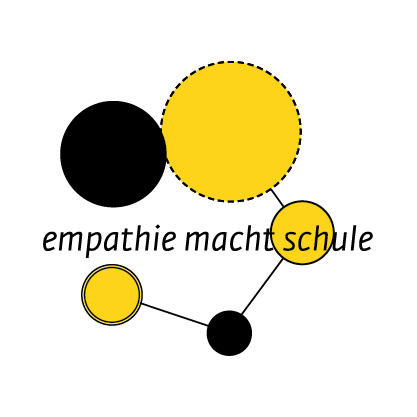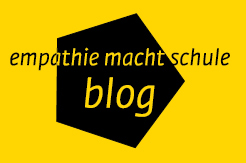englisch
“Children – Mindfulness, Empathy, Compassion and Presence”
Instructor training for professionals working with children
Throughout the curriculum we will pay close attention to group-building/teambuilding. In our experience, whenever you want to create a good environment for learning and development, it is necessary to create an atmosphere that is both safe and dynamic. These qualitites are important in the context of our own training as well as for the groups the participants are supposed to work with after the education. To create an environment free of prejudice and suffused with joy and cordiality we will make use of play and creativity, and also in this way make the training programme a kind of laboratory for personal growth and development.
The entire program is based on insights from contemporary psychology, neuro-affective psychology and pedagogy in combination with the ancient knowledge and wisdom that lies at the heart of meditation traditions. The training programme will run over two years, and will consist of nine 4-day residential workshop modules, comprising a total of 36 days.
Form: 9 modules of 4 days. The training will have the form of a workshop, and will take place indoors as well as outdoors. Sessions will alternate between lectures, exercises in mindfulness and awareness, body exercises, exercises in relational competence, and work on dreams and creativity.
The next 2 – year course starts in February 2020 and will take place near Hamburg
• Modul 1: 06.02. – 09.02.20
• Modul 2: 02.04. – 05.04.20
• Modul 3: 11.06. – 14.06.20
• Modul 4: 27.08. – 30.08.20
• Modul 5: 03.12. – 06.12.20
• Modul 6: 28.01. – 31.01.21
• Modul 7: 18.03. – 21.03.21
• Modul 8: 27.05. – 30.05.21
• Modul 9: 19.08. – 22.08.21
The first day starts at 10 am. The last day we end between 3 pm and 4 pm.
Criteria for participation: You are expected to have a daily meditation practice, or must be willing to establish and maintain one. You have previously received professional training and/or have substantial experience in working with children. You are to fill out a form and to write a 3-500 word statement about your personal and professional background, as well as your motivation for this training programme.
Between modules: You are expected to maintain a daily practice. Participants will exchange about their experiences in small groups, 2 times 3 hours, if necessary via Skype.
Maximum number of participants: 24
Teachers: Master of arts in psychology, dramaturgy and dance Katinka Gøtzsche, psychologist and family therapist Helle Jensen, author Peter Hoeg, MA, and anthropologist Martijn van Beek, PhD.
Place: Germany, in Ammersbek north of Hamburg at Haus am Schüberg TagungsHaus am Schüberg, Wulfsdorfer Weg 33, 22949 Ammersbek.
Costs: Registration Fee: 5700,- €. The training is exempt from purchase tax according to §4 Nr 21a)bb)UstG(Umsatzsteuergesetz – law for VAT).
Accomodation: 197,- €, for each modul staying in double room.
Registration: Deutsch-Dänisches Institut für Familientherapie, http://www.ddif.de/seminare/training
Module 1: Introduction to working with the natural competences of the body, breathing, the heart, creativity and consciousness: How to improve mindfulness, empathy, presence and compassion in daily life. How to reestablish the joy of being playful and in contact with our natural creativity, which we remember from our childhood? And how does this recuperated joy influence our daily life and personal-professional development? Each participant works at becoming aware of his or her own approach to the natural competences. The principles of training. The focus is on the participants‘ own practice.
Module 2: The connection between the work with the natural competences and development of the relational competence of the professional. How to get into contact with your own personal authority and authenticity? Seeing personal integrity and self-esteem as part of the personal expression of one’s inner core, we will explore and develop their connection with the natural competences. The participants formulate their personal-professional goals for what they want to learn during the training period.
Module 3: Continuing work with exercises associated with the natural competences, still focused on the professional’s own meditative practice. Theoretical background for the development of the exercises. Situating this specific way of working with natural competences in relation to major contemplative traditions. Findings of current (neuro-) scientific research in this field.
Module 4: Working with exercises associated with the natural competences, focusing both on the professional and on how they may be passed on to children and adolescents. Dialogue exercises using examples from the professional participant’s daily practice with children or adolescents.
Module 5: Retreat. Focus will be on the participants‘ own personal-professional development. There will be plenty of opportunity for contemplation in silence, for body exercises together as well as for individual supervision.
Module 6: How to use the exercises and the relational competence when being together with children and young people who have experienced or are experiencing grief and loss? How to stay in contact with both oneself and with the child/children under such difficult circumstances?
Module 7: How to use the exercises when you work with children or young people with special needs and challenges? In these situations the professional is very often under pressure, making it even more difficult and thus even more important to stay in contact with one´s inner core and strength, also in order to be able to help the child to do the same. How can play and inventiveness help to resolve conflicts between children, between adults, and between children and adults?
Module 8: Training in how to transmit the values and the exercises to parents and colleagues. How to explain why, what and how we are doing the work? How to establish creative meetings between people in general as well as specifically between children and adults? And how can these meetings lead to better self-accord and a deeper mutual understanding?
Module 9: Evaluation of the personal – professional goals. Conclusion of the training programme.

